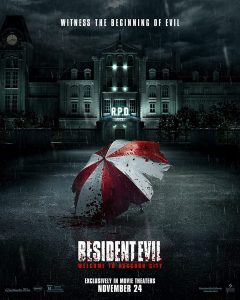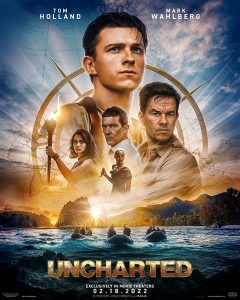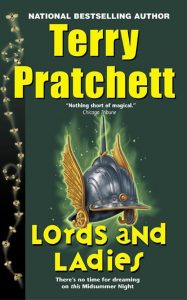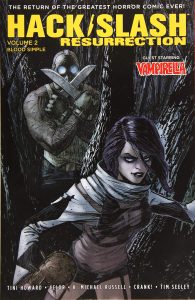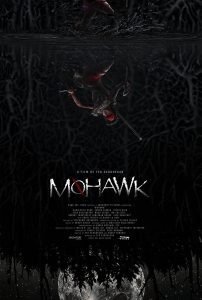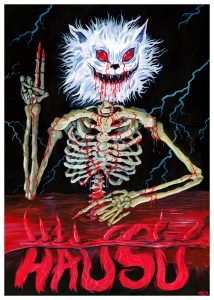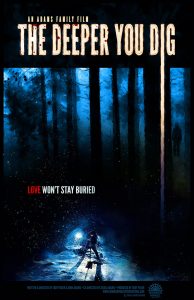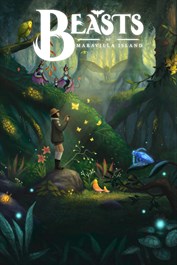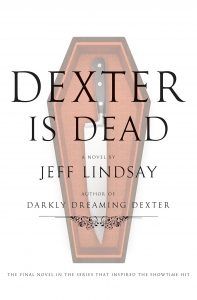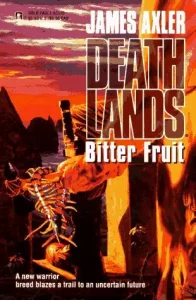 Eventually, I liked the plot for Bitter Fruit. Cryogenically frozen bioterrorists first rebuild the Celtic empire[1] and then plot to wipe out most of the already dregs of humanity that yet remain, a hundred years past the nuclear holocaust that already basically marked the end of the world. Luckily, we know who can probably stop them! (Oh, this is a Deathlands book, if you didn’t actually know yet who could stop them.)
Eventually, I liked the plot for Bitter Fruit. Cryogenically frozen bioterrorists first rebuild the Celtic empire[1] and then plot to wipe out most of the already dregs of humanity that yet remain, a hundred years past the nuclear holocaust that already basically marked the end of the world. Luckily, we know who can probably stop them! (Oh, this is a Deathlands book, if you didn’t actually know yet who could stop them.)
I say “eventually”. While this was not the first book in the series to have a new author, it was the first book where I noticed. Characters subtly out of character[2], a big change in the way book transitions work[3], and most damning, a possible change in the gender egalitarianism of the series. I’m reserving judgment on that last bit, as one data point is not a trendline, but all the same, none of the female characters have ever used sexuality to extricate themselves from danger before this author, so. (The main male character has at times tolerated sex while in danger, which I suppose is technically rape, and also I do not object to using sex as a tool in the toolbox when required. I’m just leery of it from a first time to the series author, after having spoken so much about the quality of the books to date.)
Worst news: this new author will be popping up frequently for a little while. Man I hope someone smacks him around and sets him straight.
[1] Well obviously empire is not the right word here. People isn’t what I want though, and kingdom is nearly as wrong as empire is, albeit a little less inadvertently snide.
[2] Just because you call a dude laconic, if he talks all the time and in much more detail than he used to, I’m both going to notice that and also judge you for not having known what laconic meant in the first place, nameless (unless I went to wikipedia and checked again) Deathlands farm writer!
[3] Instead of “end a book, pick up the next book immediately where the prior book just ended”, this was “end a book, skip forward by about three chapters of what I would have expected to read, but those three chapters wouldn’t make any sense at all if they’d been written, which I guess is why they had to be skipped, but since I noticed, you didn’t actually accomplish much.”
